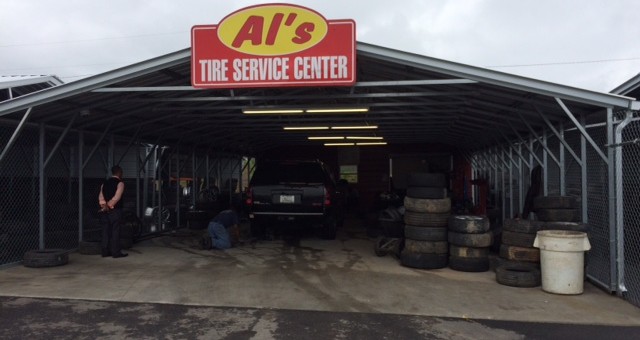The Environmental Advantages of Appropriate Tire Upkeep
Keeping appropriate tire care is commonly forgotten, yet its influence on the setting is extensive. Proper tire maintenance not just extends the life-span of tires but also decreases land fill waste and adds to enhanced air quality.
Minimized Fuel Consumption
Improving tire upkeep practices can lead to a considerable decrease in gas consumption for lorries. According to the U.S. Department of Power, underinflated tires can decrease gas mileage by 0.2% for every 1 psi decline in pressure in all 4 tires.
In enhancement to tire stress, regular tire rotations and alignments likewise play an essential role in fuel performance. Erratically used tires can enhance fuel consumption as the engine functions harder to keep rate and grip. By keeping appropriate placement and revolving tires at suggested periods, drivers can ensure even lengthen the life and wear of their tires, inevitably conserving gas and minimizing their carbon footprint.
Extended Tire Life-span
Prolonging the life expectancy of tires is a key aspect of reliable automobile upkeep practices that can yield cost financial savings and ecological advantages over time. By appropriately maintaining tires, chauffeurs can substantially extend their functionality, minimizing the frequency at which new tires require to be made and old ones disposed of. This not just conserves important resources but also lessens the energy and discharges connected with tire production and disposal procedures.
Routinely checking tire stress, rotating tires, and making sure correct positioning are important action in extending tire life expectancy. Ample tread depth is important for ideal grip and safety, but it also contributes in exactly how long tires can be utilized prior to requiring substitute. In addition, avoiding aggressive driving behaviors that accelerate tire wear, such as extreme stopping and doglegs, can further enhance tire longevity.
Ultimately, raising the longevity of tires with proactive upkeep not only benefits the atmosphere by decreasing waste and saving sources but likewise brings about set you back financial savings for automobile owners by delaying the requirement for new tire acquisitions.
Lower Emissions Output
Reliable tire maintenance methods contribute to a decrease in emissions outcome, lining up with ecological sustainability goals in the auto industry. Correctly inflated tires, regularly turned and lined up, can enhance fuel efficiency, thus reducing the general carbon dioxide exhausts from vehicles. When tires are underinflated, the engine needs to work harder to push the vehicle, resulting in boosted fuel consumption and greater discharges. By keeping ideal tire stress levels, motorists can assist mitigate these negative ecological impacts.
In addition, well-maintained tires likewise enhance traction and reduce rolling resistance, better boosting here are the findings gas performance. This, consequently, reduces the quantity of exhaust gases released into view website the atmosphere. Furthermore, guaranteeing tires are effectively inflated and straightened can prolong the life expectancy of the tires, decreasing the frequency of tire replacements and the linked environmental prices of tire production and disposal.

Reduced Landfill Waste
Offered the positive effect of appropriate tire maintenance on minimizing emissions output, another substantial ecological advantage is the possibility for reduced landfill waste. By ensuring that tires are effectively pumped up, aligned, balanced, and turned routinely, their life expectancy can be substantially extended.

Improved Air Quality
Enhancing air quality through appropriate tire maintenance methods is a crucial aspect of lasting ecological stewardship. When tires are underinflated, they create more rolling resistance, leading to boosted fuel consumption and greater discharges of hazardous pollutants such as carbon monoxide and nitrogen oxides. Properly inflated tires not just enhance fuel performance yet also decrease the quantity of pollutants launched into the air.
Additionally, well-kept tires with correct walk deepness and alignment add to much safer driving conditions, lowering the chance of accidents that can result in the release of added company website pollutants right into the ambience. By prolonging the lifespan of tires via routine maintenance and turning, less tires are thrown out too soon, reducing the ecological influence of tire disposal and production procedures.
Verdict
In verdict, proper tire maintenance provides countless environmental benefits. It is crucial for people to prioritize tire maintenance as a straightforward yet reliable method to safeguard the atmosphere for future generations.
Correct tire upkeep not only extends the lifespan of tires but likewise reduces garbage dump waste and adds to boosted air high quality - tire tracks morris il. By preserving correct placement and rotating tires at recommended intervals, drivers can make certain also use and lengthen the life of their tires, eventually saving fuel and reducing their carbon impact
By correctly maintaining tires, chauffeurs can significantly prolong their functionality, minimizing the frequency at which new tires require to be made and old ones disposed of.Frequently inspecting tire pressure, turning tires, and making sure appropriate positioning are vital actions in expanding tire life expectancy. Furthermore, guaranteeing tires are correctly inflated and aligned can extend the life-span of the tires, lowering the frequency of tire replacements and the associated ecological expenses of tire manufacturing and disposal.